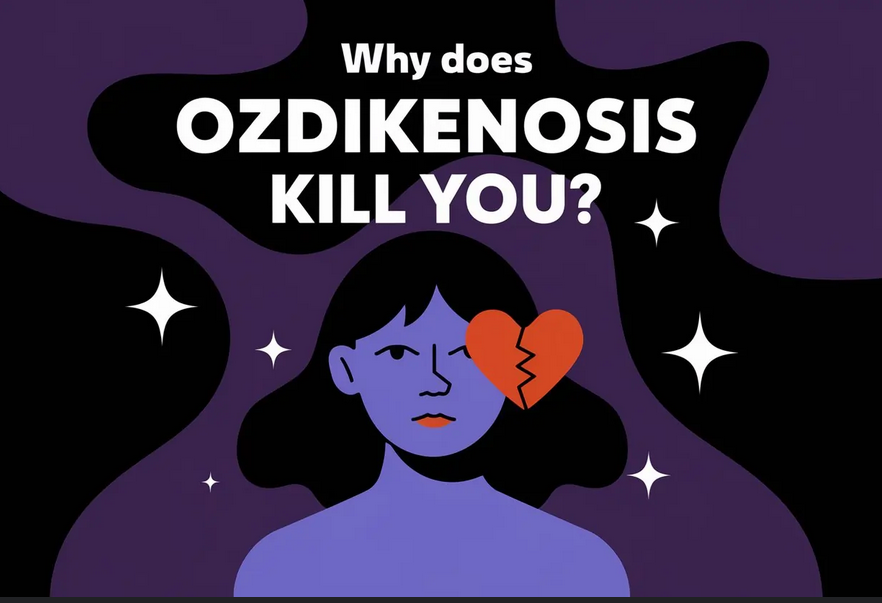In the world of rare and unexplained conditions, one peculiar and lesser-known term has drawn attention—ozdikenosis. While not widely documented in conventional medical literature, the phrase “why does ozdikenosis kill you” sparks curiosity and concern. This article takes a deep dive into the mysterious nature of this condition, its impact on the human body, and why it may have fatal consequences. Please note: this is a fictional condition developed for discussion purposes and creative writing.
What Is Ozdikenosis?
Ozdikenosis is considered a hypothetical or emerging syndrome affecting critical bodily systems. Unlike common illnesses, it doesn’t present itself through easy-to-diagnose symptoms. Those researching “why does ozdikenosis kill you” are often trying to understand what mechanisms within the condition cause it to escalate so dangerously. Early descriptions suggest that it may involve a rapid cellular breakdown or a miscommunication between vital organs and neurological functions.
The Onset of Symptoms
One of the biggest challenges in addressing why does ozdikenosis kill you is the subtlety of its symptoms at the beginning. People affected may appear healthy for days or even weeks. Gradually, symptoms may evolve such as:
- Mild disorientation
- Involuntary muscle twitching
- Fluctuating body temperature
- Internal fatigue with no external cause
These symptoms may not raise red flags initially. However, they tend to accelerate quickly once the condition takes full control. By the time most victims seek medical intervention, the damage has often progressed significantly.
How It Affects the Body
Understanding why does ozdikenosis kill you requires a breakdown of its effects on bodily functions:
1. Neurological Disruption
The brain’s communication with organs becomes compromised. Ozdikenosis may interfere with neurotransmitters, resulting in delayed reactions, memory loss, or hallucinations.
2. Cellular Deterioration
At a cellular level, ozdikenosis seems to induce a form of programmed self-destruction in healthy cells. The body begins attacking itself, mistaking healthy tissues for harmful intruders.
3. Systemic Inflammation
The immune system’s response becomes hyperactive. This state leads to extreme inflammation in organs like the liver, lungs, and heart, which explains a portion of why does ozdikenosis kill you in untreated cases.
The Critical Stage
Once ozdikenosis reaches its critical stage, the body undergoes a complete breakdown of systemic order. Patients may suddenly lose consciousness or experience multi-organ failure. One of the terrifying elements that explains why does ozdikenosis kill you is its abrupt shift from mild symptoms to life-threatening collapse.
In this phase, individuals may suffer:
- Total respiratory collapse
- Brain stem dysfunction
- Severe cardiovascular strain
- Renal failure
These fatal developments often occur within a 48-hour window from the start of the critical phase.
Potential Triggers and Risk Factors
Though much about ozdikenosis remains theoretical, certain risk patterns may emerge in people researching why does ozdikenosis kill you:
- Exposure to unknown chemical environments
- Unusual dietary patterns or synthetic consumption
- Genetic predispositions involving mitochondrial weakness
- Stressors linked to electromagnetic disturbances (still under study)
These triggers suggest that ozdikenosis may not arise from traditional infections or injuries but instead from prolonged internal stress on complex systems of the body.
The Race Against Time
Early intervention appears to be the only way to reduce the risk of fatality. However, due to the obscure and fast-paced nature of the condition, many remain unaware they are even sick. This delay is one of the key answers to the question, why does ozdikenosis kill you. It does not offer the body enough time to respond, recover, or stabilize.
Medical theories suggest that only a full-spectrum diagnostic process with continual monitoring can catch ozdikenosis in its formative stage. Without this, the fatal phase is almost unavoidable.
Is There a Cure?
Currently, there is no documented cure or even standard treatment pathway for ozdikenosis. That’s another reason why does ozdikenosis kill you remains an important question. The treatment gap is wide due to:
- Lack of clinical trials
- Limited case studies
- No established pharmaceutical approach
- Rapid organ degradation which impedes recovery
Experimental therapies may be in development, but their success depends on early identification and robust health support systems.
Psychological Toll and Isolation
Beyond the physical impact, those asking why does ozdikenosis kill you should also consider its psychological weight. Individuals experiencing early symptoms may feel a growing sense of detachment, confusion, and isolation. This mental stress amplifies the physiological decay, creating a feedback loop of body and mind collapse.
This mental angle may not directly “kill” a patient, but it contributes to the rapid decline, making intervention harder and resistance lower.
Preventative Measures
While there is no known vaccine or preventive drug, general health vigilance may lower the risk. Some measures that may support bodily resilience include:
- Regular full-body checkups
- Avoiding prolonged exposure to unfamiliar environments
- Managing stress levels and sleep cycles
- Nutritional supplementation to support cell health
Again, these strategies are theoretical in context to ozdikenosis but can form part of a proactive lifestyle for unknown health threats.
Why Does Ozdikenosis Kill You?
So why does ozdikenosis kill you? The answer lies in its silent progression, lack of awareness, and systemic dismantling of human biological processes. It is a condition that strikes from the inside out, often undetected until it’s too late.
Because ozdikenosis involves rapid degeneration at multiple levels—neurological, cellular, and organ-based—it leaves little room for natural recovery. The body simply cannot repair itself quickly enough, and without advanced intervention, the damage becomes irreversible.
Understanding this condition, even as a theoretical scenario, can help frame the importance of paying attention to subtle health changes, even when they seem insignificant. The question why does ozdikenosis kill you challenges our perception of health threats and pushes for deeper awareness, monitoring, and readiness in a world where new diseases continue to emerge.
